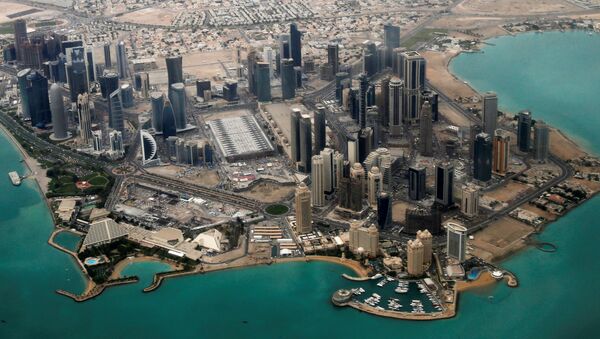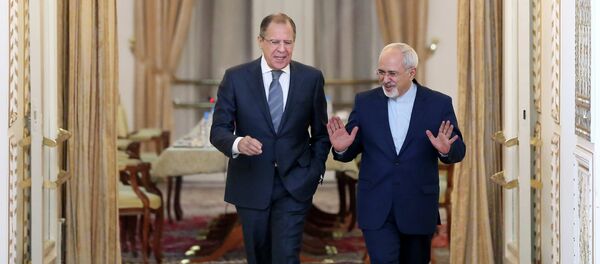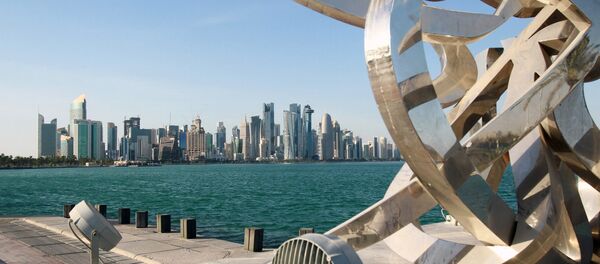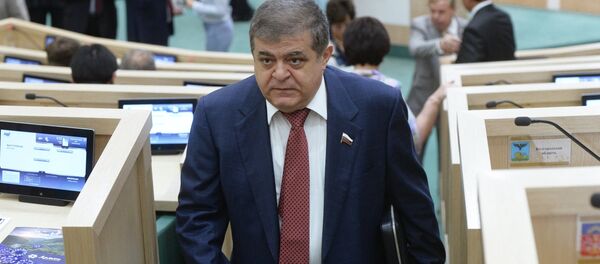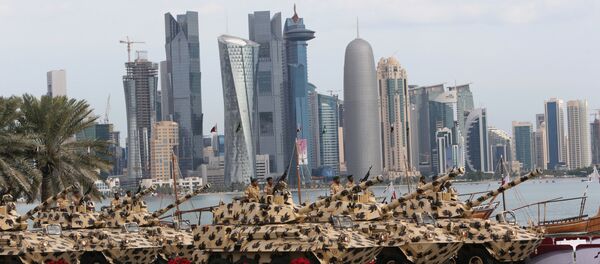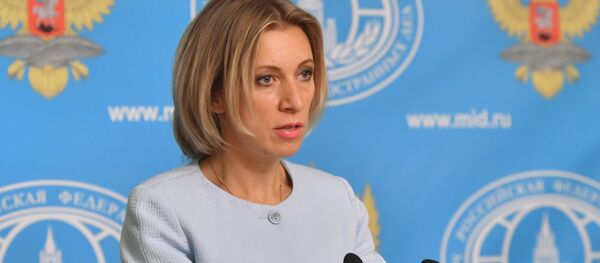On June 5, Bahrain, Saudi Arabia, Egypt, the United Arab Emirates (UAE), Yemen, Libya, the Maldives and Mauritius severed diplomatic relations with Qatar. The states accused Qatar of supporting terrorist groups, as well as of interfering in other countries' domestic affairs.
Libya made a similar decision. Yemen cut diplomatic relations citing Doha's links with Houthis. The Maldives took the same step, citing extremism and terrorism concerns. Mauritius joined the boycott. Mauritania broke off diplomatic ties with Qatar while Jordan downgraded ties with the country on June 6.
The Qatari Foreign Ministry rejected the accusations of interference in other countries' domestic affairs and said that Doha will not take responsive measures.
Major Diplomatic Crisis
The incident took place a week after the Arab Islamic American Summit in the Saudi capital of Riyadh. Later, the Qatari Foreign Ministry said that the website was hacked and the remarks were falsely attributed to the nation’s leader.
However, Saudi Arabia, the UAE and Bahrain continue to insist that Qatar must expel members of Hamas and other groups regarded by its neighbors as terrorists.
In turn, Doha has denied the allegations of sponsoring terrorism and continues to insist on the cyberattack version, but no suggestion has been made on who could have behind the hack.
Kremlin Spokesperson Dmitry Peskov responded to the allegations, calling them another "fake news story" published with reference to "unnamed sources in unnamed department of some unknown intelligence service."
Sources in the Russian Embassy in Qatar told Sputnik that the Qatari government did not contact Russian diplomats over Russia’s alleged involvement in the incident.
Kuwait’s Shuttle Diplomacy
An economic and political blockade prompted Qatar to ask Kuwait to play the role of a mediator in the crisis. Earlier this week, the Kuwaiti emir held talks with the Saudi king and visited the UAE.
It is unclear whether this shuttle diplomacy will work or not, but in 2014, it was Kuwait that managed to settle a crisis between Qatar and its neighbors. However, this time Doha is being accused of breaching an agreement to stop supporting Shia organizations after the 2014 crisis.
Moscow Calls for Talks
He added that Russia is interested in having normal relations with all nations in the Middle East.
"We are convinced that any divisions can take place. We were never happy over the difficulties that arose in relations of other countries. We are interested in maintaining friendly relations with everyone, especially in the region where concentration of all efforts of fighting a joint threat, the threat of international terrorism, is a priority," Lavrov told a press conference.
According to the minister, it is important to resolve the tensions via negotiations.
Moscow has been discussing the crisis both with Doha and Russian allies in the region. Russian President Vladimir Putin held phone talks with Qatari Emir Tamim. As a result of the talks, Moscow reaffirmed that any crisis situation should be resolved through negotiations. Putin also discussed the Qatar crisis with Turkish President Recep Tayyip Erdogan.
Russia’s Role in the Crisis Settlement
Elena Suponina, an analyst at the Russia Institute for Strategic Studies, pointed out that Russia maintains good relations with all the parties involved in the spat.
"It is necessary not to side with one or the other party. Russia should use its contacts in the Middle East to reconcile the sides," the expert told Sputnik.
"There are serious allegations against Qatar over sponsoring Islamic terrorist groups. This is very serious. In this situation, Russia does not need rapprochement with Qatar," Dolgov said.
The expert also pointed to the fact that the diplomatic blockade of Qatar has been endorsed by Russia’s partner Egypt.
"Today, ties between Moscow and Cairo are positively developing. Moreover, to a certain extent, Egypt’s allegations against Qatar are reasonable," Dolgov said.
According to him, there is no single reason for Russia to seek rapprochement with Qatar.
